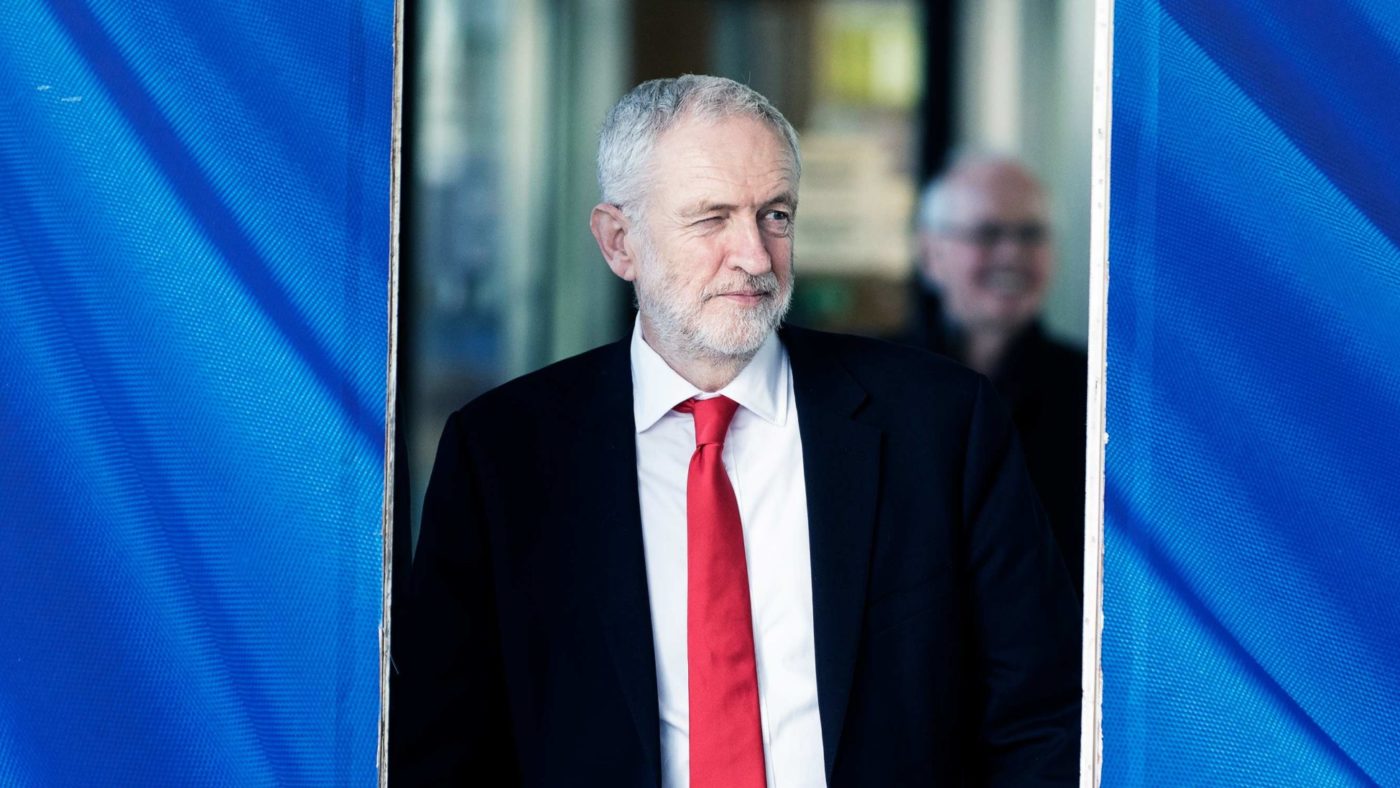It is a truth universally acknowledged that a politician in possession of a political party must be in want of a policy. And Jeremy Corbyn’s opportunity lies in the fact that he already has a policy to help guide him through these treacherous Brexit waters. It was agreed at last year’s annual conference, and it mandates… precisely nothing.
Remain-supporting Labour MPs like to insist that Corbyn is obliged, now that his preference for a fresh general election has been frustrated, to pursue a second referendum to give us the chance to make amends for our making the wrong decision last time. But – and this cannot be emphasised too often – that is not what Labour conference policy says. It actually instructs the leadership to demand a general election and then, if that effort fails, to consider all alternatives, including a rerun referendum.
That is exactly what he is doing today – considering alternatives. Belatedly attempting to earn the mantle of elder statesman (that’s half right), the Labour leader has called on MPs to work together to find a consensus that will make it through parliament.
It’s quite the ambition, isn’t it? Theresa May spent two years negotiating her own deal. It took dozens of civil servants, hundreds of meetings and a fair few gallons of midnight oil to finally arrive at a “solution” that was more compromise than conviction. But Jeremy regards such efforts with contempt. How hard can it be? He’ll do the job in a fraction of the time – he’ll have to, since it’s looking increasingly likely that our departure date from the EU will be the end of June at the latest.
His attempt to steer the nation got off to a rocky start last night, when he stormed out of a cross-party meeting because Chuka Umunna was there. Jeremy is happy to meet with most people – the IRA (pre-ceasefire), the Islamist terrorists of Hamas, his friends in Hezbollah, to name the first three I could think of. But even he has to draw the line somewhere, and where better than at the presence of a democratically-elected MP who was his Labour colleague until a few weeks ago?
This sort of student union posturing will go down well with his hard core supporters. But to everyone else, it exposes Corbyn’s lightweight and superficial approach to politics. That approach should surprise no one who knows him, and it is entirely in line with his general approach to Brexit, especially over the last three months or so.
As Theresa May’s withdrawal deal took shape, and she made fundamental concessions on the Irish backstop, Corbyn saw his opportunity. Not the opportunity to set aside partisan considerations for the benefit of the wider country, but the exact opposite. From the very start, or at least since he whipped his MPs in support of triggering Article 50 two years ago, Corbyn’s priority has been to gain party political advantage out of Brexit.
In the backstop, he saw his opportunity. And yet he gave the distinct impression that he wasn’t entirely clear about what that opportunity was. Encouraged by his Shadow Brexit Secretary, Sir Keir Starmer, Corbyn agreed to support the principle of Britain becoming a member of a new customs union with the European Union. While Starmer’s motivation was to ensure friction-free trade post-Brexit, Corbyn’s was that this contradicted one of Theresa May’s red lines, outlined in her Lancaster House speech in January 2017. There may have been some sense behind Labour’s policy, but for Corbyn, the fact that it was different from the Conservatives’ was enough.
But the contradictions emerged when he repeatedly slammed May’s deal because – and here he echoed the attack of those Tory MPs with whom he has least in common, Jacob Rees-Mogg’s European Research Group (ERG) – Britain could find itself trapped against its will in a permanent customs union with the EU. We want none of that, decreed Corbyn – we want a permanent customs union that is negotiated by a Labour government.
This is why Corbyn is reported to be increasingly sympathetic to Nick Boles’s so-called Common Market 2.0, or the “Norway-Plus” model. It’s fundamentally different from Norway of course, because it would keep Britain in a customs union. But crucially, it is a solution opposed by Theresa May and her government, which makes it all the more attractive to Corbyn.
When he was an anonymous backbencher, Jeremy Corbyn thought nothing of making common cause with any MP of any party whenever he had something he wanted to promote or virtue signal over, whether that cause was opposing the then Labour government or Nato or America or Israel. Mostly it was opposing the Labour government.
Now, with the prospect of becoming prime minister himself, he is a born-again partisan, demanding a unity from his MPs that he would never have surrendered under previous leaders. He knows how to inspire his troops, those who voted for him as leader on the promise of a new form of politics that rejects the nuances and compromises of the past.
He still doesn’t want to compromise. Domestic and European policy bores him, and after stating that he opposes everything Theresa May wants, his concentration seems to start to wane. His priority is not to seek a way forward on Brexit (although he’d rather be out of the EU than in); his only priority is to win the public relations battle with the Prime Minister and manoeuvre his way to another general election. If that means promoting Norway-Plus – or any other back-of-the-envelope solution that is handy – so be it.
Such cynicism is unworthy of the new politics he sought to inspire. But in Corbyn’s world, principle is whatever a Corbyn-led Labour Party does.
CapX depends on the generosity of its readers. If you value what we do, please consider making a donation.


